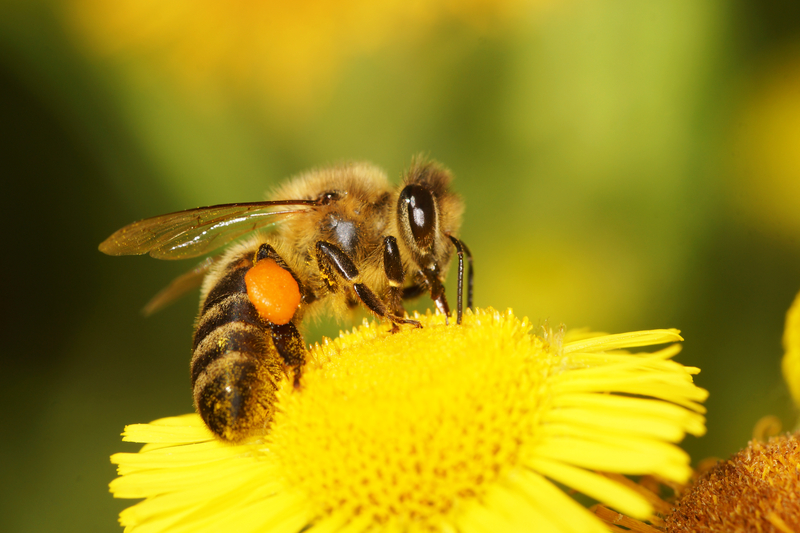Achieve a Pristine Garden with 3 Proven Weed Control Methods
Posted on 28/08/2025
Achieve a Pristine Garden with 3 Proven Weed Control Methods
If you're striving for a lush, immaculate garden, battling weeds is an inevitable challenge. Unwanted invaders not only diminish the beauty of your outdoor space but also compete with your prized plants for water, nutrients, and sunlight. Fortunately, with the right weed control strategies, you can transform your landscape into a flourishing oasis. In this comprehensive guide, we reveal three proven weed management techniques that will help you maintain a pristine garden year-round.
Why Weed Control is Essential for a Healthy Garden
Before diving into effective weed control methods, it's crucial to understand why weed management is a cornerstone of garden care. Weeds are voracious competitors. They rob your plants of nutrients and moisture, harbor pests, and can even spread plant diseases. Over time, unchecked weed growth can ruin the aesthetics and productivity of your garden.
- Enhanced plant health: Weeds siphon precious resources from your garden plants.
- Improved appearance: Weed-free gardens are visually appealing and tidy.
- Prevention of pest and disease outbreaks: Many pests and diseases thrive in weedy environments.
- Increased yields: For vegetable and fruit gardens, weed control ensures higher, healthier harvests.
This makes reliable weed prevention methods not just a matter of aesthetics, but a fundamental part of successful gardening.

Understanding Different Types of Weeds
Identifying the adversaries in your garden helps you devise the best weed control approach. Weeds generally fall into these categories:
- Annual Weeds: Complete their life cycle in one season (e.g., crabgrass, chickweed).
- Biennial Weeds: Take two years to mature and reproduce (e.g., wild carrot, burdock).
- Perennial Weeds: Live for years, regrowing from roots (e.g., dandelions, bindweed, thistle).
Each type requires slightly different tactics, but the overarching principles of weed management remain consistent.
Top 3 Proven Weed Control Methods for a Pristine Garden
Now, let's dive into the three best weed control practices that guarantee lasting results and help you reclaim your garden:
1. Organic Weed Control: Natural Solutions for a Healthy Garden
Organic weed management focuses on safe, eco-friendly techniques to suppress weed growth. These methods are ideal for organic gardeners, families with pets, or anyone seeking chemical-free solutions.
- Hand-Pulling:
- Hand-pulling weeds is straightforward and effective, especially after rain when the soil is moist.
- Use a weeding fork or trowel to extract roots and prevent regrowth.
- Regularly inspect garden beds to tackle young weeds before they mature.
- Hoeing:
- A sharp hoe is invaluable for slicing off seedlings at the soil line.
- Best performed on a dry day, so severed weeds wither quickly and don't re-root.
- Boiling Water:
- Pour boiling water directly on weeds growing in paths, driveways, or cracks--just be careful to avoid splashback onto desired plants.
- Vinegar or Salt Sprays:
- Diluted white vinegar or salt can kill small weeds, especially in hardscaped areas, though these options can affect soil health if overused.
Organic weed control methods are labour-intensive but highly rewarding, ensuring no harmful chemicals leach into your soil or groundwater.
2. Mulching: The Secret Weapon Against Weeds
Mulching is perhaps the single most effective long-term weed prevention method. By covering bare soil, mulches act as a formidable barrier that:
- Blocks sunlight, preventing weed seeds from germinating.
- Retains soil moisture, benefitting your plants.
- Regulates soil temperature and adds organic matter as it breaks down.
There are several types of mulch gardeners can use for effective weed suppression:
- Organic Mulches:
Examples: Straw, shredded leaves, wood chips, grass clippings, compost.- These enrich soil fertility as they decompose.
- Spread 2-3 inches thick around plants, avoiding direct contact with stems.
- Inorganic Mulches:
Examples: Landscape fabric, black plastic sheeting, gravel.- Excellent for pathways or under trees where you don't grow annuals.
- Suppress weeds but don't break down to feed the soil.
Tips for Mulch Weed Control:
- Weed the area thoroughly before applying mulch.
- Replenish organic mulches annually as they decompose and thin.
- Check for weeds growing on top of mulch and remove promptly.
Mulching not only keeps gardens weed-free but also creates a neat, attractive appearance. As a bonus, it supports beneficial soil microbes and conservation of water.
3. Chemical Weed Control: Fast and Targeted Solutions
For some gardeners, especially on large plots or with persistent perennial weeds, chemical herbicides offer an efficient form of weed management. Used correctly, modern herbicides can control weeds with minimal impact on desired plants.
- Pre-emergent Herbicides:
- Applied before weed seeds germinate in early spring or fall.
- Create a barrier in the soil, preventing weed establishment.
- Commonly used in lawns, flower beds, and vegetable gardens.
- Post-emergent Herbicides:
- Used to kill existing weeds after they have sprouted.
- Include selective types targeting broadleaf weeds, and non-selective (such as glyphosate) that kill all green plants they touch.
Safety Guidelines:
- Always read and follow the manufacturer's instructions.
- Apply on calm days to prevent drift onto wanted plants or water sources.
- Wear gloves, goggles, and protective clothing during application.
- Keep pets and children out of treated areas for the recommended period.
Chemical weed control should be used responsibly and as a last resort, especially if you wish to maintain an eco-friendly garden. Target only problem areas and integrate with mulching and manual removal for a comprehensive approach.
Bonus Tips: Maintenance and Integrated Weed Management
While the above methods form the backbone of any successful weed control strategy, your garden will benefit even more from good cultural practices. Here's how to further minimize weed invasions and achieve a truly pristine landscape:
- Monitor your garden regularly: Catching weeds early is easier than tackling mature invaders.
- Encourage dense planting: Crowded beds leave little room for weeds to thrive.
- Fertilize and water wisely: Nourish your desired plants, but avoid overwatering bare soil, which encourages weed germination.
- Edge your beds: Maintain clear, sharp edges to stop lawn grass and weeds from creeping into flower or vegetable borders.
- Rotate crops in vegetable gardens: This breaks weed life cycles and reduces seed banks.
Integrated weed management combines cultural, mechanical, and chemical controls for the best long-term results. Evaluate what works best for your garden's unique conditions!

Frequently Asked Questions about Weed Control
- How often should I weed my garden?
Aim for weekly checks, especially during peak growing seasons. Removing young weeds is much easier than tackling mature ones. - Is mulch safe for all plants?
Organic mulch is suitable for most garden beds. Avoid piling mulch too high or letting it touch stems, which can cause rot. - Can I make my own mulch?
Yes! Shredded leaves, grass clippings, and composted organic matter are excellent homemade mulches. - Do vinegar and salt sprays make soil infertile?
They can alter soil pH if overused. Use sparingly and target only unwanted weeds in cracks or walkways. - How can I reduce chemical usage in my garden?
Combine mulching and regular hand-weeding to minimize or even eliminate the need for herbicides.
Conclusion: How to Keep Your Garden Pristine All Season Long
With the right weed control methods--including organic removal, generous mulching, and targeted chemical control--you can enjoy a garden that's not only beautiful but also healthy and productive. Remember, the best gardens rely on consistent effort, smart strategies, and a prevention-first mindset. Choose the weed management approach that fits your gardening style, and you'll be rewarded with a truly pristine landscape that thrives year after year.
Don't let weeds win--adopt these three proven weed control techniques and transform your garden into a sanctuary of natural beauty and bounty!
Latest Posts
Harness the power of vertical gardening
Top Picks: Garden Tools for Outdoor Enthusiasts
Shield Your Garden from Winter's Chill

